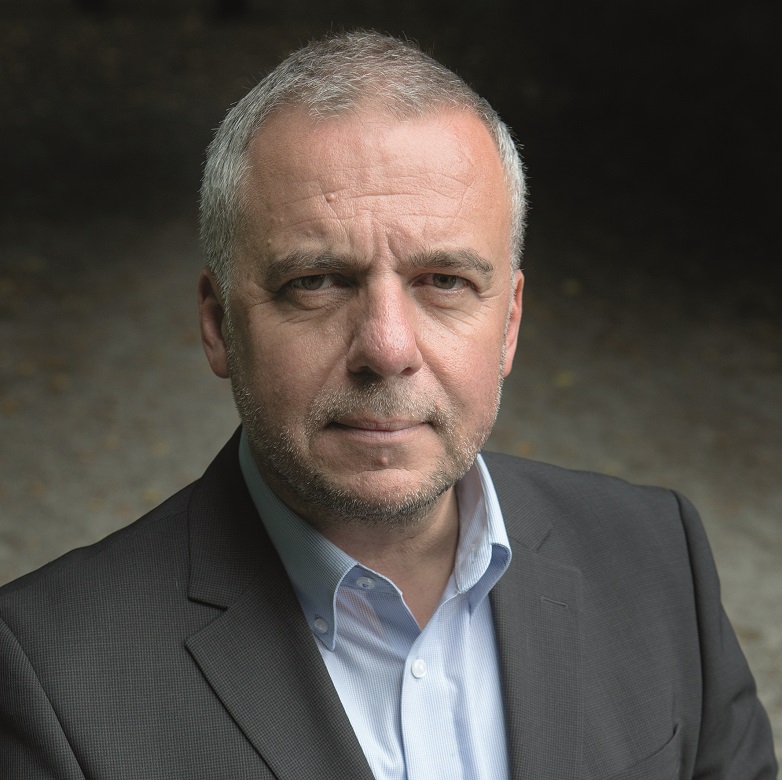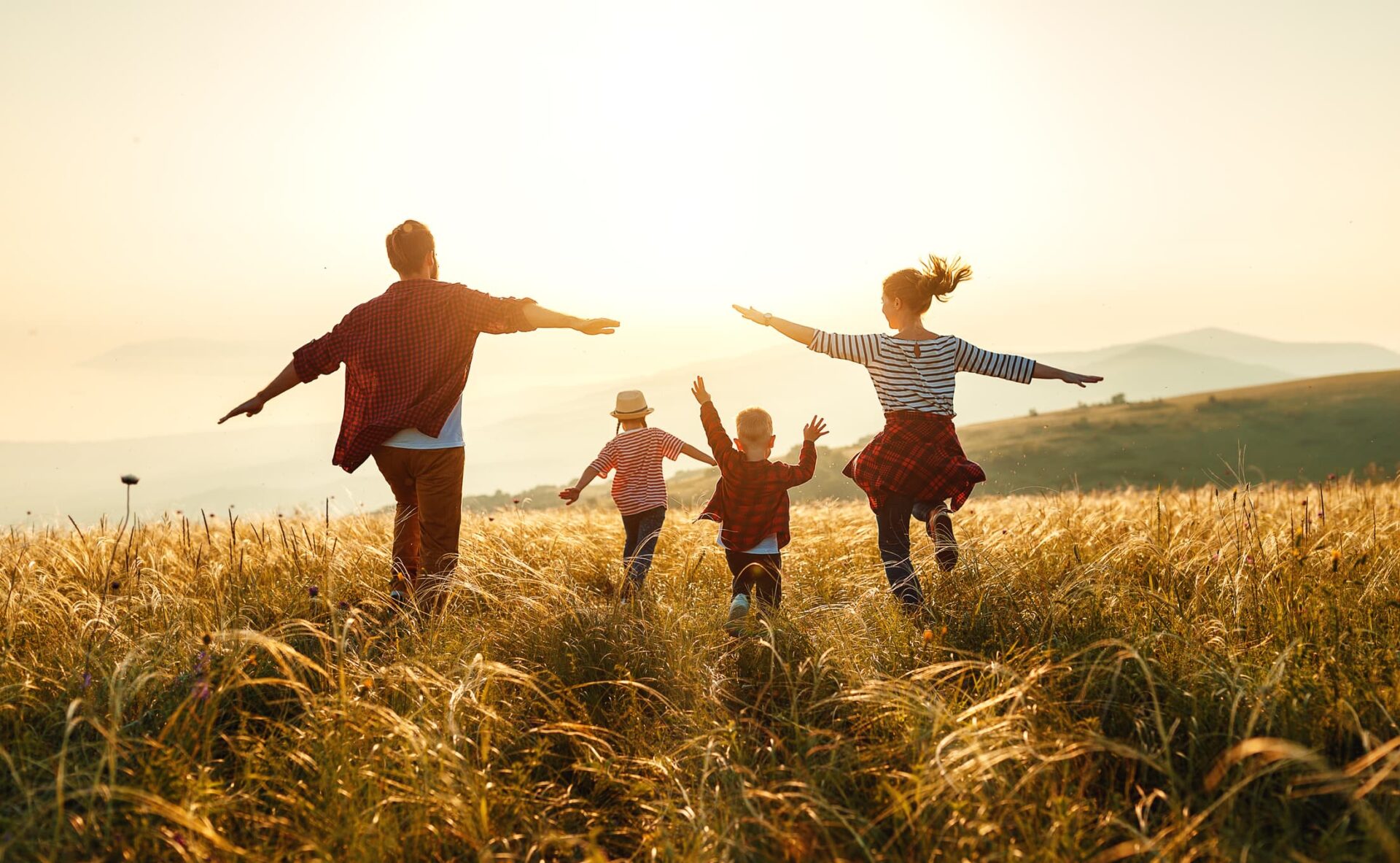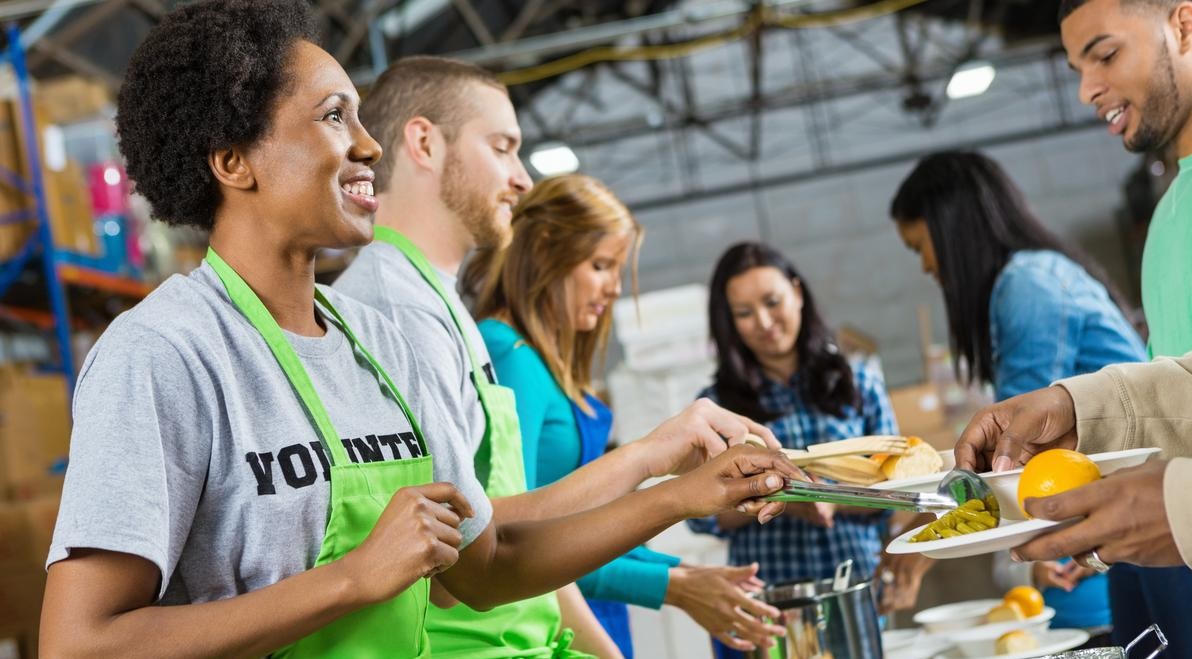Most people make happiness their life goal. Yet only 15 percent of adults in 30 countries and nine percent in Belgium report being “very happy,” according to an April 2022 Global Happiness Study by Ipsos. How do we move into a happier category, especially during tough times like a pandemic and war in Europe?
“If we can find out what makes people happier, we can broaden that circle,” says Belgian Leo Bormans, author of ‘The World Book of Happiness’ and ‘The World Book of Happiness 2.0’, which have been published in multiple languages. These books summarise the findings of 100 happiness researchers in at least 50 countries worldwide, offering a myriad of positive psychology tips.
“We found some universal laws that make people happy all over the world,” Bormans says. “It’s interesting to find out after so many thousands of years of evolution of human kindness.”
Happiness is broadly defined as a state of well-being and contentment. There is no formula for happiness as everyone is different, Bormans notes, but there are several factors that impact us. First, positive psychology, which emerged at the turn of the millennium, has a “more important and durable influence” than focusing on mental unwellness. It lets us shape our lives to be very happy, whether we have a high genetic predisposition for happiness.
Second, about 40 percent of the differences between people in happiness levels are due to genetics, 10 percent by circumstances (where you were born and grew up) and 50 percent by modifiable factors like mindset and attitude. That means we have a lot of control over our happiness. “If you can’t change your circumstances, change the way you look at them,” Bormans says.
Bormans notes that while most studies on happiness are by economists, it usually means dealing with choices rather than money. “Even people who win the lottery do not become happier,” he says. “There is a certain amount of money you need for basic things. Once you have this, more and more money does not make you more and more happy. Of course, it’s nice to have some money. But what do you do with 12 houses?”
Nor, he adds, are happiness and sadness opposites. “They are part of the rich colour of emotions that we can walk through. There is a place in life for both.”
An engaged life busts the myth that someone will achieve eternal bliss by lying on a beach for the rest of his or her life. Rather, happiness involves other people and taking action. “Society makes us believe that the opposite is true,” Bormans says. “But it’s not about me, it’s about others. It’s not about things, it’s about people. Nobody becomes happy from his new Tesla, but we probably become happy when we put our family in it and go to a nice place for an experience.”
A meaningful life tops up the engaged life with inspiration. “How can you make a difference in your own life and how will that influence people around you?” Bormans asks. “Happiness is feeling good while doing good.”
Sunshine, she's here, you can take a break
Remarkably, the percentage of people “very happy” or “quite happy” in Belgium did not fall during the pandemic, according to Ipsos. But it did internationally. Compared to mid-2020, when the lockdowns were at their height, the prevalence of happiness in 2022 around the world increased by four percentage points.
Unsurprisingly, the United Nations (UN) World Happiness Report 2022 – published annually for the last 10 years – noted national average stress levels in all 10 global regions increased during the pandemic by about eight percent above their pre-pandemic value in 2020 and three percent above this baseline in 2021.
The stress was fuelled by worry and sadness, not anger. In parallel, global benevolence increased in 2021 by a whopping 25 percent over its pre-pandemic level. This benevolence was largely demonstrated by helping strangers, but also by donating and volunteering.

Leo Bormans
According to Bormans, two positive characteristics of people improved during the pandemic: gratitude and friendliness. “Nobody is complaining about the quality of the coffee on a terrace because he’s so happy he can sit on the terrace. We have become more grateful for what is instead of focusing on what’s not. And people are more tolerant standing in queues, for example, and dealing with traffic.”
The pandemic was a huge social experiment because it took away so much, making people realise how much they missed people, not things, Bormans adds. “Materialism tries to convince us that you can buy happiness. Covid has taught us this is not true. Our houses are full of things we do not need. What is the use of having 54 pairs of shoes if you’re not allowed to go out for a walk?”
A lot of people became isolated during the lockdowns, which not only made them lonely but also curbed their ability to grow, Bormans notes. “We need each other to grow. You are always ‘the other one’ for another.”
The isolation gave way to reflection and the percentage of Europeans looking for another job doubled from 15 to 30 percent per Bormans. And most are looking in another sector. “People are not looking for another job because of money, rather to find meaning and positive support,” he says. “This is a huge change.”
He says that when the pandemic showed how many jobs could be done from home, it also showed that most commuting was unnecessary. That made many people question other elements of their work, Bormans says. “My God, they started thinking about the priorities in their life. Happiness has become a focus of most people now and it should be for politicians, decision-makers and everybody involved in our society,” he says.
Businesses focusing on happiness at work have at least 20 percent more output, Bormans notes. “Employees are not only more productive, but they are also more innovative and creative. They have better contact with clients and more job loyalty.”
Moreover, home and work lives influence each other for better or worse. “We are not living from eight-to-five, we are living 24 hours a day,” Bormans says. “And talking about wellbeing is not talking about a work-life balance. What stupid idea is that? We are focusing on the mental health of people as total beings. It’s not about a happy hour amidst a misery week.”
At the same time, Bormans says we should acknowledge negative emotions. “There is a lot of sadness in this world. There’s a lot of pain. There are a lot of things not going well. And we have to admit that.”
Clap along if you feel like happiness is the truth
“We have the abilities and strategies to go for a longer and happier life,” notes Bormans. “Research can help us.” The first step is wanting to be happy and being open to positive ideas. Some people do not wish to be happy, he says. They tend to be perfectionists, cynics, critics and/or have a fear of attachment or other people.
The good news is all of this is learned behaviour, which can be unlearned. “Our bodies give signals to our brains, and you can influence your brain,” Bormans continues. “When you think things will go wrong, they will – not because you believe that, but because you adapt your behaviour to your belief, and so believe something positive.”
Think about something from the past week that made you happy, Bormans says. Odds are that it had four characteristics: first it did not cost much; second, it was unexpected and out of a routine; third, it involved positive feedback that made you feel valuable; and fourth, you were not alone.
In today’s selfie society, these moments are often lost. “We’re very good at doing the opposite of what makes us happy, focusing on material things, routine, fear, negative feedback, criticism, etc.,” Bormans says. “But we don’t become happy from selfies. We do become happy from other people, getting together. It’s about allowing experience in your life, not being afraid of new things.”
To this point, learning and growing make us happy and we do both thanks to others. Research with kids shows they are very happy when they learn something. “When you grow older, learning becomes competition,” Bormans says. “And then it becomes very sad because that is comparing.”
According to research, comparing is the biggest hindrance to happiness. Case in point, silver Olympic medallists are rarely happy because they focus on what they did not do to get the gold.
Bormans cautions against social media as it encourages comparing. “Social media is a culture of comparing, which is horrible for mental health. We just compare all day long with other people. They’re always drinking some cocktail when you have to work, and you become unhappy.”
He calls Facebook ‘Fakebook’ as people often paint unrealistic pictures of themselves there. He laughs that being an influencer is a new job and people take selfies instead of talking to the people they are with. The Metaverse, in which people can be completely different virtually, will not be the answer to happiness either, Bormans warns. He says it is dangerous because it encourages people to be happier with their virtual lives than their real ones.
The only thing you should compare is where you come from as it pertains to personal growth and individual achievement, he advises. “That makes me very grateful for the life I’ve had. I still have some goals, but I do not compare myself to all the other successful writers.”
Similarly, Bormans frowns upon bucket lists because they always point to something you have not done yet. He refers to them as means rather than goals. But small, positive interventions will make most of us up to 10 percent happier, he says. For example:
- Give more than receive. Research shows that children are happier when they give, rather than get. For example, drawing a picture at school and giving it to their parents generally makes them happier than receiving a toy.
- Surround yourself with happy people. “There are more optimists in the world than pessimists, but pessimists make more noise,” Bormans says. Both positions spread contagiously so if you want to become an optimist, hang out with optimists.
- Smile often. It’s hard to think of something negative when you’re smiling, Bormans notes.
What makes us happier is being kind and friendly to other people, having friends, taking good care of others, doing volunteer work, giving instead of trying to get, doing something meaningful in life, and being grateful and hopeful, Bormans says. “The pathway to happiness is hope,” he stresses, defining it as the psychology of possibility. “Hopeful people are happier, more successful and healthier all over the world. Hope is optimism with its sleeves rolled up; you come into action.”
The opposite of hope is fear, which is “the worst advisor for happiness,” Bormans continues. “You cannot be happy when you’re afraid. Fear paralyses but hope gives us energy.” For example, he says refugees in his village are driven by hope, not despair, which is how they came to Belgium in the first place.
My level's too high to bring me down
It may surprise some that Bormans, a self-proclaimed ‘happiness ambassador’, lives in rainy Belgium, but the annual UN World Happiness Report says that climate has little do to with wellbeing. Case in point, in its 2022 report, the UN ranks Belgium 19 out of 146 primary member states. Finland remains in the top position for the fifth year running, followed by Denmark, Iceland, Switzerland, the Netherlands, Luxembourg, Sweden and Norway. Austria is ranked 11th, Ireland 12th, Germany 14th, the United Kingdom 17th and France 20th, its highest position to date. Afghanistan is ranked last.
“The most important predictor for happiness is the place where you are born and that does not depend on the weather,” says Bormans. “People make us believe that those in California are happier because of palm trees. Well, I can assure you there are no palm trees in the Netherlands, Denmark or Finland.”
Some countries do not have a word for happiness like Afghanistan, he notes. Yet people want to be happy everywhere. The top factors influencing the UN rankings, determined by a Gallup World Poll, are gross domestic product per capita (purchasing power parity), social support (relatives and friends whom one can count on), healthy life expectancy at birth (based on World Health Organisation data), freedom to make life choices, generosity (donations to charity) and perceptions of corruption (within national government and business).
While not ranked among the happiest countries, Bhutan is onto something by measuring 120 national happiness indicators, Bormans says. “It measures not only whether people become richer but also whether they become happier.”
Countries are happier when trust is higher among people and institutions, and equality enables trust, he adds. That’s why Scandinavian countries do very well in happiness research. They focus on social living rather than individual living and do a lot of volunteer work. “Helping others makes us richer people than trying to get much more money,” Bormans notes.
Genetic cheerfulness
About 35 to 40 percent of the heritability of happiness is accounted for by genetic factors, says Meike Bartels, a research professor in genetics and wellbeing at Vrije University in Amsterdam, who contributed to the UN’s 2022 report and ‘The World Book of Happiness 2.0.’ A biological psychologist, she has studied almost 60,000 twins (both fraternal and identical) in different family structures (twins raised together versus apart) to reach this figure. Identical twins reported similar levels of happiness, even growing up separated, while fraternal twins exhibited greater variation.
Nevertheless, genetics and environment are interlinked. “We found that genes and the environment both play a role [so] we’re beyond the nature-nurture debate,” says Bartels. “We know it’s nature and nurture. Genetics are inherited so happy parents create a happy environment but also transmit happy genes to their children – a double advantage. Genes and environment are never independent.”
Happiness and longevity
Dan Buettner, the US-based author of ‘The Blue Zones’ (geographic locations with high concentrations of centenarians) says happy people live an average of six years longer than unhappy people.
While not all the centenarians he interviewed are happy, all of the Blue Zones are in the top 20 percent of happiness rankings. That’s because “the same things that get someone to 100 are what make the journey pleasant,” he says: social connectivity, physical fitness, eating healthfully (mostly a whole, plant-based diet), knowing your sense of purpose, having money but not wanting it, living close to nature, investing in your spouse/family (married people live longer than those who are divorced or single) and living in a walkable community (which fosters both exercise and socialization).
In ‘Ways to Greater Happiness: A Delphi study’ coordinated by Buettner with National Geographic and Gallup, a group of experts considered 68 ways in which individuals can raise their happiness. The most effective strategies are: investing in social networks; doing meaningful things; and caring for one’s health. “People who socialize six-to-seven hours a day tend to be happier,” says Buettner. “Loneliness shaves off eight years of life.” He sums up happiness with “something to do, someone to love, something to look forward to and something to give back.”




